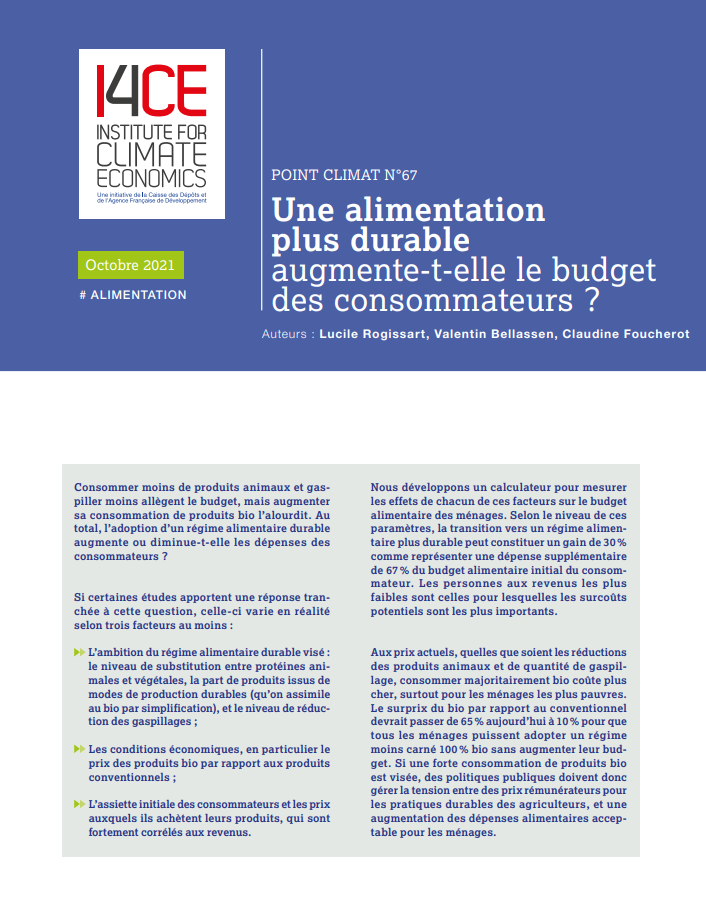Does more sustainable food increase consumer budgets?
Consuming less animal products and wasting less lighten the budget, but increasing consumption of organic products adds to it. In total, does adopting a sustainable diet increase or decrease consumer spending?
Report available in French only
While some studies give a clear-cut answer to this question, it actually varies according to at least three factors:
- The ambition of the sustainable diet: the level of substitution between animal and plant proteins, the share of sustainably produced products (which is simplified to organic), and the level of waste reduction;
- The economic conditions, in particular the price of organic products compared to conventional products;
- The initial base of consumers and the prices at which they buy their products, which are strongly correlated with income.
I4CE has developed a calculator to measure the effects of each of these factors on the household food budget. Depending on the level of these parameters, the transition to a more sustainable diet can range from a 30% gain to an additional 67% of the consumer’s initial food budget. People with the lowest incomes have the highest potential additional costs.
At current prices, regardless of reductions in animal products and waste, consuming mostly organic food is more expensive, especially for the poorest households. The price premium for organic over conventional would have to fall from 65% today to 10% for all households to be able to adopt a less meaty 100% organic diet without increasing their budget.
If a high consumption of organic products is targeted, public policies must therefore manage the tension between remunerative prices for sustainable farming practices and an increase in food expenditure acceptable to households.

